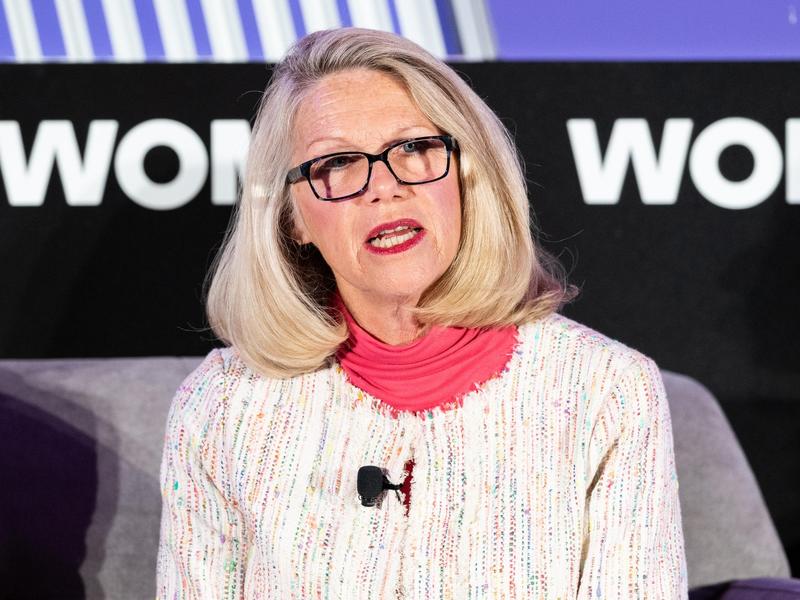
With the collapse – for now – of GOP efforts to repeal Obamacare, there’s plenty of blame to go around. But, there are also important lessons to take about why it failed and what it may mean for Republicans in the 2018 midterms.
- Trump’s lack of governing experience matters. Trump's lack of political experience was one of his selling points in 2016. Washington is broken and only those outside of its insidious orbit can fix it. Thus far, however, the theory isn't working out so well in practice. Trump is our first president to come into office without having worked in or around any branch of government. Those in his inner circle - minus Vice President Pence - also lack substantive governing experience. None have worked in a White House. On top of that, the White House is far behind previous administrations in staffing up the Administration. There’s a serious learning curve for any new president – no matter the background. This president has an even steeper one – but has not put people in place to help him navigate it. Running a government ISN’T like running a business or a company.
- Trump’s ideological flexibility and transactionalism didn’t help make “deals” any easier. Early on, the conventional wisdom was that Trump’s lack of allegiance to any GOP faction (he doesn’t owe the Tea Party or the Chamber of Commerce anything) – and lack of a pesky voting record to have to account for – was going to give the president pliability to cut, as Trump might say, “the best deals.” But, his lack of hands-on interest in the details ultimately mattered more than his desire to “win.” The transactionalism that he practiced in business isn't workable on a bill this complex and emotionally freighted.
Moreover, early on at least, there was some thought that his lack of attachment to Republican orthodoxy was going to make it easier for him to cut deals with Democrats. But, instead of spending his first few weeks in office looking for ways to reach out to the minority party, Trump took every opportunity possible to poke them in the eye. His strong disapproval rating among Democrats is now 76 percent in the most recent SurveyMonkey polling. It would be political suicide for any Democrat to work with him. His threats to let Obamacare fail, and to blame Democrats for its demise, are hard to define as “bipartisan outreach.” - Trump’s electoral coalition isn’t a governing coalition. Trump’s “Blue Wall” busting coalition that helped him capture Pennsylvania, Wisconsin and Michigan, hasn’t translated to governing success. He promised these blue-collar voters that he would fix the economy and health care without cutting their benefits. This bill wasn’t going to do that. As such, it’s hard to rally those voters to support it.
It’s yet another reminder that the Speaker Ryan/traditional GOP leadership agenda is not the one that Trump ran on – or one that those who voted for him necessarily supported. Which is why outsourcing it in the first place to the GOP leadership was always risky. - Trump doesn’t scare Republicans. With an approval rating hovering around 40 percent, the president lacks the political muscle to get and keep his party in line. Sure, he still has solid support among the GOP base, but there is a decided enthusiasm gap. The latest polls show Trump’s “strong disapproval” ratings among Democrats to be twice as high as his “strong approval” ratings from Republicans. Meanwhile, his approval ratings among independents are in the 30’s – a dismal and dangerous place for any President. Most important, no one, not even among Republicans, likes the bill. Republicans have to defend this bill next year in their election bids. Trump doesn’t.
- Republicans are still the party of “No.” For eight years, the only thing holding this party together was their unified dislike of President Obama. This papered over serious differences in philosophy, style and ideology. Getting this diverse and diffuse party to agree on something to support has proven to be much harder. And, as many Congress watchers remind us, stuff like tax reform is going to be even tougher as the ideological, philosophical and fundamental policy differences are even larger.
- Health care is a quagmire. Every president has been sucked into thinking that he could make changes to this complicated and emotionally wrought issue. And every president has paid a political price. It cost President Clinton his House majority in 1994. Obamacare helped sink Democrats in 2010 and 2014. There’s little to no immediate political upside to tackling health care.
What It Means Electorally
- A demoralized base. President Trump himself chastised the GOP for failing to live up to a promise they’ve made to voters for the last seven years. That’s not exactly the best way to boost morale and “team spirit.” A demoralized and depressed base is a base that doesn’t show up to vote in 2018. As one GOP strategist said to me this morning, even a 10 percent drop in turnout among Republicans puts traditionally safe GOP seats in danger and makes vulnerable Democratic seats safer.
- Trump says he won’t “own” Obamacare failures or the failure to pass a repeal of the legislation. But, polls show his party will. An April poll by Kaiser Family Foundation asked “who is responsible for any problems with the Affordable Care Act going forward.” It found that “six in 10 (61%) say that President Trump and Republicans in Congress would be responsible because they are in control of the federal government. Fewer (31%) say former President Obama and Democrats in Congress are responsible because they passed the law.”
Polling of Trump voters done for the University of Virginia by Public Opinion Strategies in April, soon after the first round failure of the House repeal bill, found that “only 5% of respondents said that Trump was the most responsible for the failed initial attempt to repeal and replace the Affordable Care Act. Roughly half (48%) blamed Democrats, while the remainder blamed House Speaker Paul Ryan (12%), moderate Republicans (15%), or the conservative House Freedom Caucus (21%).” In other words, as many Trump voters blamed House Republicans as House Democrats for the failure of the health care bill.
Bottom line: voters know who controls Congress. And it’s not the Democrats. And, Obama’s not in the White House anymore. If Obamacare fails – people lose coverage, prices spike, insurers leave – it’s hard to blame the party out of power for it. In fact, it’s likely that Congress will ultimately pass something to stabilize the markets so that a total collapse won’t occur. - House Republicans already “own” a repeal vote. Regardless of what happens with the Senate bill, House Republicans are in a tough bind. They have already voted on a bill that the president himself dubbed too “mean.” If the GOP fails to send a bill to the president, they are stuck between a disappointed GOP base (that may fail to turn up to vote) and fierce Democratic/independent opposition to a bill that they supported. That’s not fun place to be, especially if you sit in a swing district.
- At least it’s only July. If there’s any silver lining for Republicans it’s that this is happening 16 months from the midterms. There’s still time for the GOP to right the ship – or at least to bail out the water that’s currently sinking it. But, righting that ship is going to be tough given the dynamics I outlined above.









Subscribe Today
Our subscribers have first access to individual race pages for each House, Senate and Governors race, which will include race ratings (each race is rated on a seven-point scale) and a narrative analysis pertaining to that race.